Hydrogen Vehicles
입력 2018.11.22 (15:23)
수정 2018.11.22 (15:36)
읽어주기 기능은 크롬기반의
브라우저에서만 사용하실 수 있습니다.
[Anchor Lead]
Eco-friendly hydrogen buses have gone into service in Seoul. The government plans to foster the market for the pollution-free vehicles by distributing a thousand hydrogen buses to major cities nationwide by 2022.
[Pkg]
A city bus leaves the garage. The vehicle looks similar to any other bus, except for the fact that it runs on hydrogen. It can drive all day on a 15-minute charge. It is silent and does not emit exhaust fumes.
[Soundbite] Jeong Seung-hwa(Passenger) : "Exhaust gas is annoying when I use buses on the street. I expect that this kind of bus will be better."
The bus also has the effect of making the air cleaner while running, as it sucks in air from outside and filters fine dust and other pollutants to leave only oxygen, which is then combined with hydrogen. The principle is that power generated in the process is used to run the vehicle and water is discharged.
[Soundbite] Cho Myung-rae(Environment Minister) : "More than 65 percent of air pollutants in large cities across the nation are discharged from vehicles. In particular, 36 percent is emitted by large diesel cars."
The government plans to boost the domestic hydrogen bus market to over 16,000 units by distributing a thousand such vehicles nationwide by 2022. Thirteen companies, including Korea Gas Corporation and Hyundai Motors will establish corporate bodies to install 100 hydrogen charging stations by 2022. But in order to promote the spread of the eco-friendly buses, it is first necessary to lower the steep price, which now amounts to over 800 million won per unit. Experts also call for system reform and the easing of regulations on building charging stations.
Eco-friendly hydrogen buses have gone into service in Seoul. The government plans to foster the market for the pollution-free vehicles by distributing a thousand hydrogen buses to major cities nationwide by 2022.
[Pkg]
A city bus leaves the garage. The vehicle looks similar to any other bus, except for the fact that it runs on hydrogen. It can drive all day on a 15-minute charge. It is silent and does not emit exhaust fumes.
[Soundbite] Jeong Seung-hwa(Passenger) : "Exhaust gas is annoying when I use buses on the street. I expect that this kind of bus will be better."
The bus also has the effect of making the air cleaner while running, as it sucks in air from outside and filters fine dust and other pollutants to leave only oxygen, which is then combined with hydrogen. The principle is that power generated in the process is used to run the vehicle and water is discharged.
[Soundbite] Cho Myung-rae(Environment Minister) : "More than 65 percent of air pollutants in large cities across the nation are discharged from vehicles. In particular, 36 percent is emitted by large diesel cars."
The government plans to boost the domestic hydrogen bus market to over 16,000 units by distributing a thousand such vehicles nationwide by 2022. Thirteen companies, including Korea Gas Corporation and Hyundai Motors will establish corporate bodies to install 100 hydrogen charging stations by 2022. But in order to promote the spread of the eco-friendly buses, it is first necessary to lower the steep price, which now amounts to over 800 million won per unit. Experts also call for system reform and the easing of regulations on building charging stations.
■ 제보하기
▷ 카카오톡 : 'KBS제보' 검색, 채널 추가
▷ 전화 : 02-781-1234, 4444
▷ 이메일 : kbs1234@kbs.co.kr
▷ 유튜브, 네이버, 카카오에서도 KBS뉴스를 구독해주세요!
- Hydrogen Vehicles
-
- 입력 2018-11-22 15:28:11
- 수정2018-11-22 15:36:33
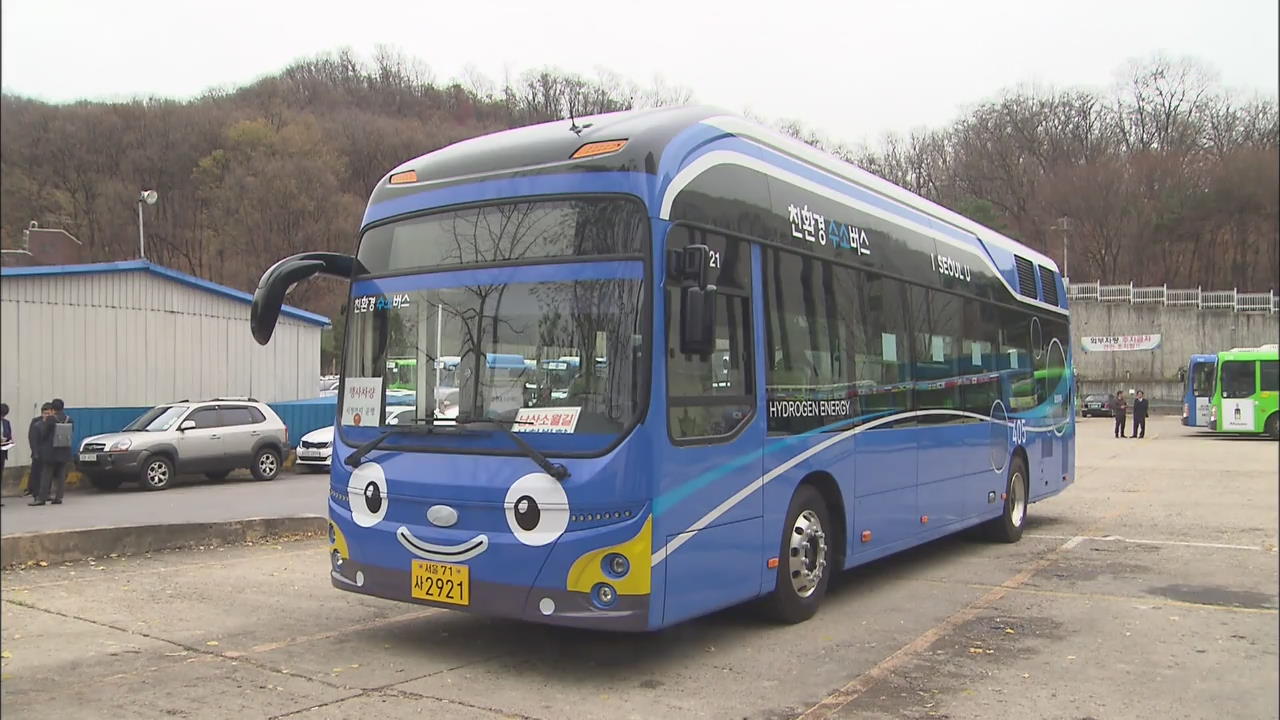
[Anchor Lead]
Eco-friendly hydrogen buses have gone into service in Seoul. The government plans to foster the market for the pollution-free vehicles by distributing a thousand hydrogen buses to major cities nationwide by 2022.
[Pkg]
A city bus leaves the garage. The vehicle looks similar to any other bus, except for the fact that it runs on hydrogen. It can drive all day on a 15-minute charge. It is silent and does not emit exhaust fumes.
[Soundbite] Jeong Seung-hwa(Passenger) : "Exhaust gas is annoying when I use buses on the street. I expect that this kind of bus will be better."
The bus also has the effect of making the air cleaner while running, as it sucks in air from outside and filters fine dust and other pollutants to leave only oxygen, which is then combined with hydrogen. The principle is that power generated in the process is used to run the vehicle and water is discharged.
[Soundbite] Cho Myung-rae(Environment Minister) : "More than 65 percent of air pollutants in large cities across the nation are discharged from vehicles. In particular, 36 percent is emitted by large diesel cars."
The government plans to boost the domestic hydrogen bus market to over 16,000 units by distributing a thousand such vehicles nationwide by 2022. Thirteen companies, including Korea Gas Corporation and Hyundai Motors will establish corporate bodies to install 100 hydrogen charging stations by 2022. But in order to promote the spread of the eco-friendly buses, it is first necessary to lower the steep price, which now amounts to over 800 million won per unit. Experts also call for system reform and the easing of regulations on building charging stations.
Eco-friendly hydrogen buses have gone into service in Seoul. The government plans to foster the market for the pollution-free vehicles by distributing a thousand hydrogen buses to major cities nationwide by 2022.
[Pkg]
A city bus leaves the garage. The vehicle looks similar to any other bus, except for the fact that it runs on hydrogen. It can drive all day on a 15-minute charge. It is silent and does not emit exhaust fumes.
[Soundbite] Jeong Seung-hwa(Passenger) : "Exhaust gas is annoying when I use buses on the street. I expect that this kind of bus will be better."
The bus also has the effect of making the air cleaner while running, as it sucks in air from outside and filters fine dust and other pollutants to leave only oxygen, which is then combined with hydrogen. The principle is that power generated in the process is used to run the vehicle and water is discharged.
[Soundbite] Cho Myung-rae(Environment Minister) : "More than 65 percent of air pollutants in large cities across the nation are discharged from vehicles. In particular, 36 percent is emitted by large diesel cars."
The government plans to boost the domestic hydrogen bus market to over 16,000 units by distributing a thousand such vehicles nationwide by 2022. Thirteen companies, including Korea Gas Corporation and Hyundai Motors will establish corporate bodies to install 100 hydrogen charging stations by 2022. But in order to promote the spread of the eco-friendly buses, it is first necessary to lower the steep price, which now amounts to over 800 million won per unit. Experts also call for system reform and the easing of regulations on building charging stations.
이 기사가 좋으셨다면
-
좋아요
0
-
응원해요
0
-
후속 원해요
0












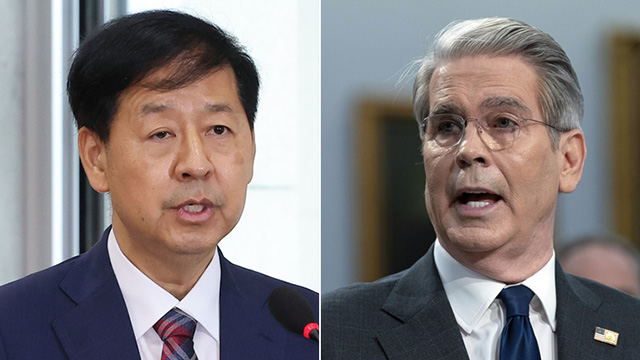
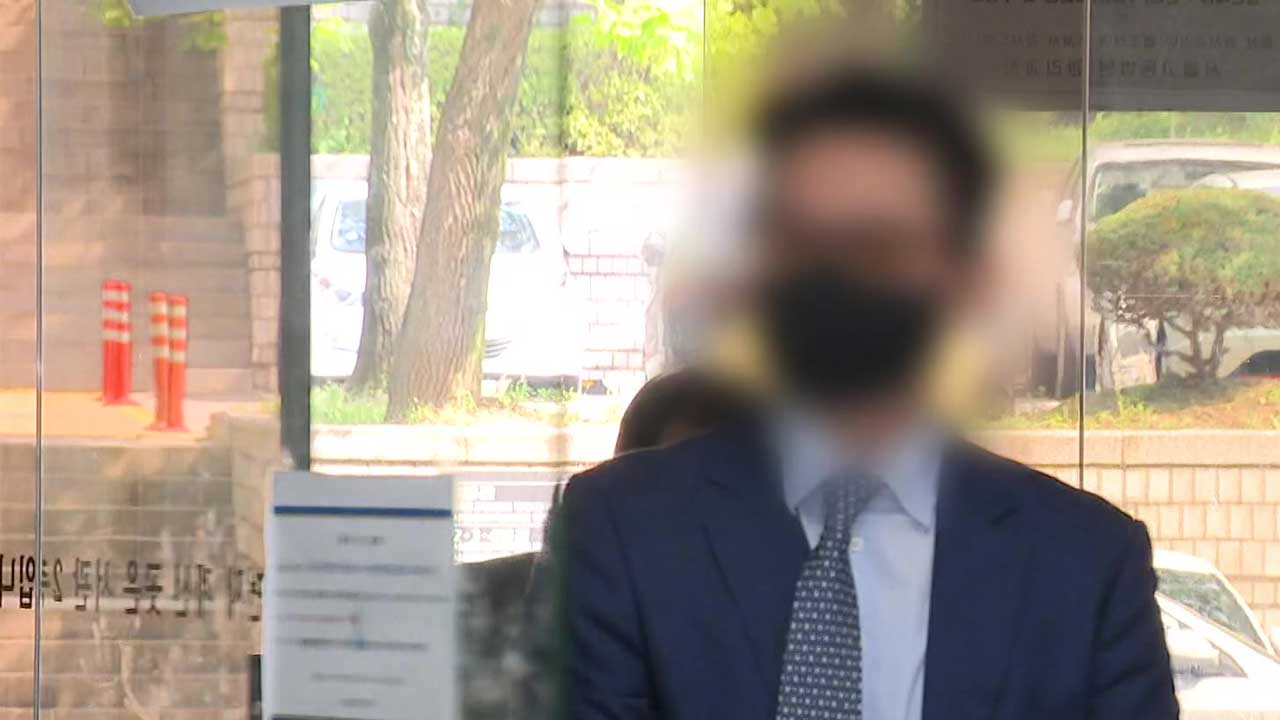
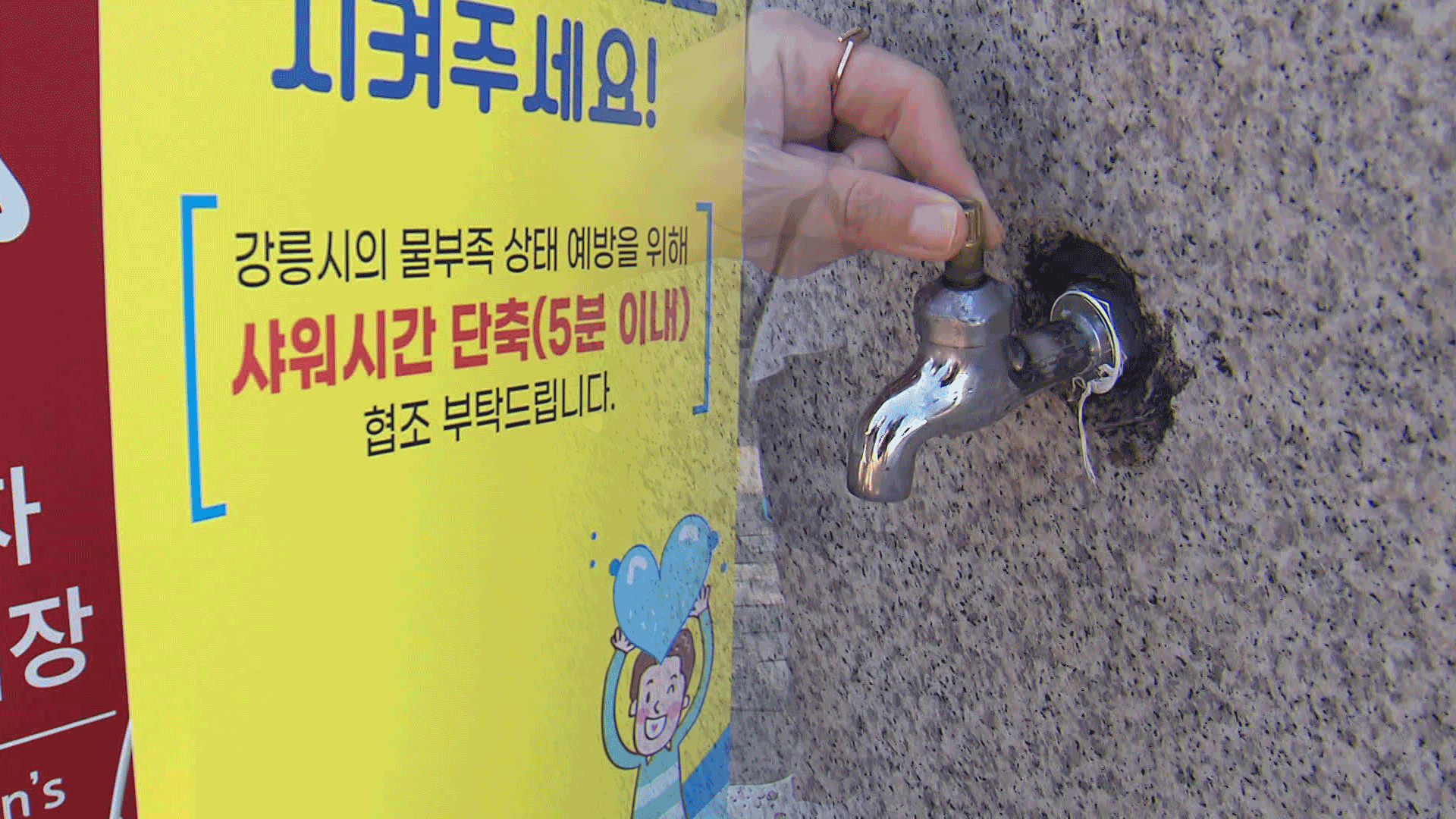
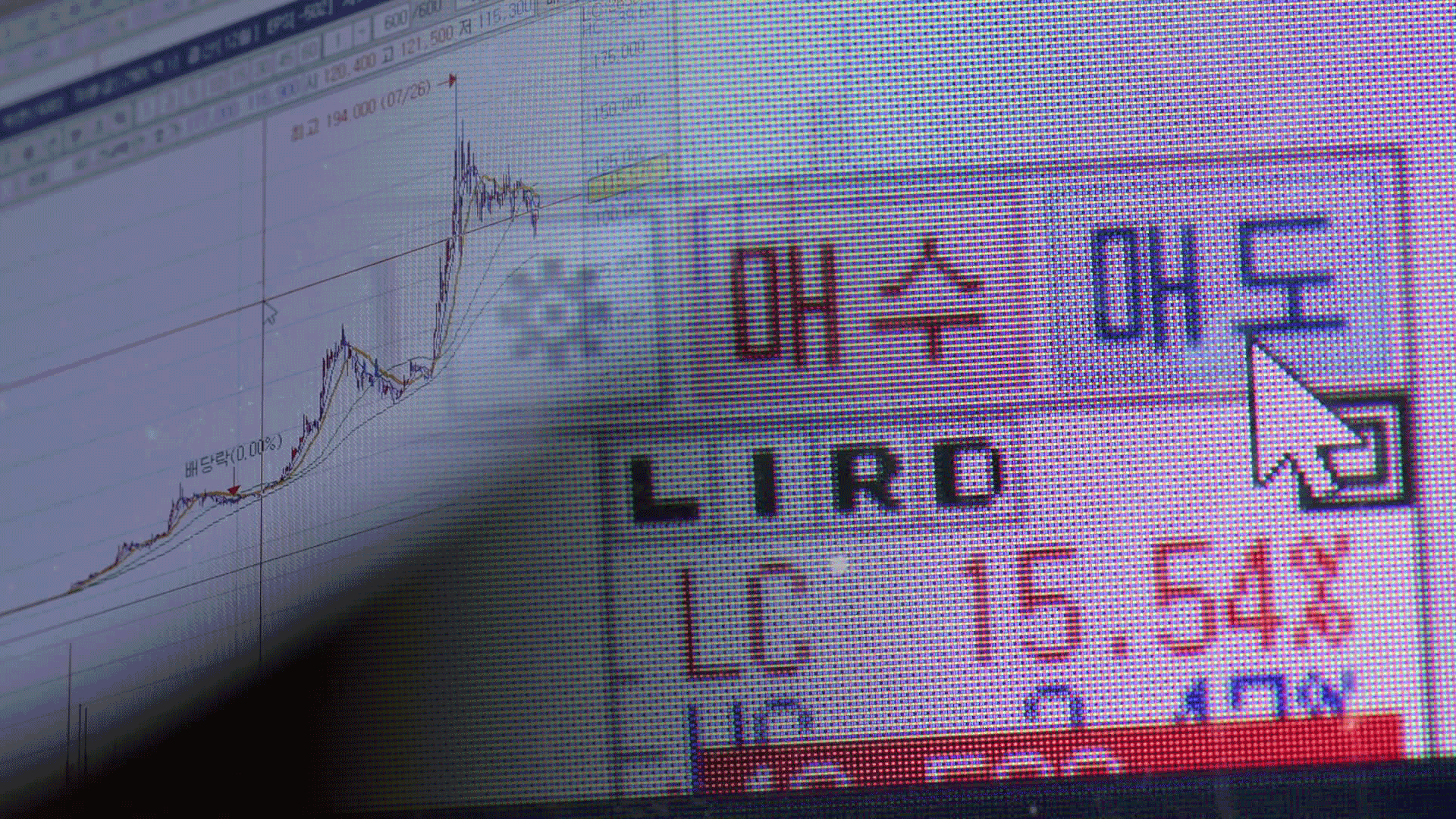

이 기사에 대한 의견을 남겨주세요.